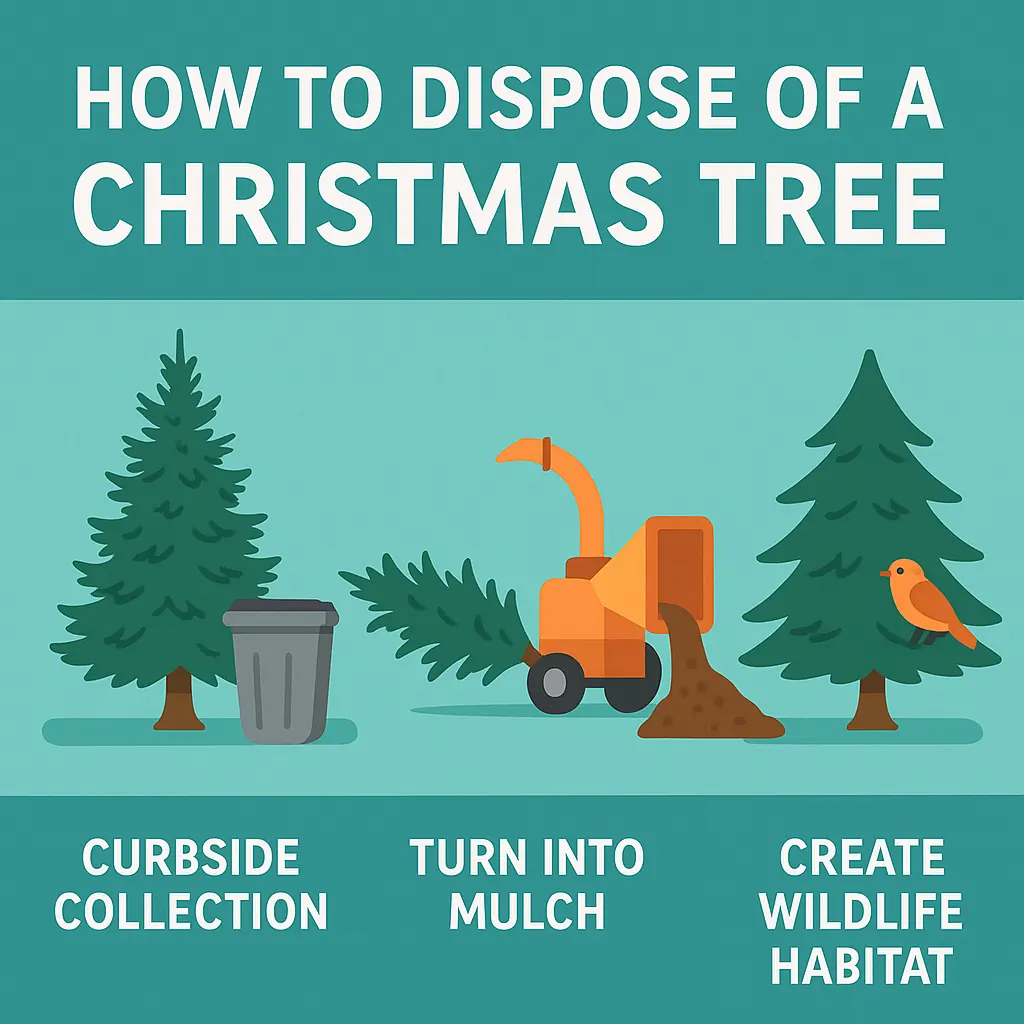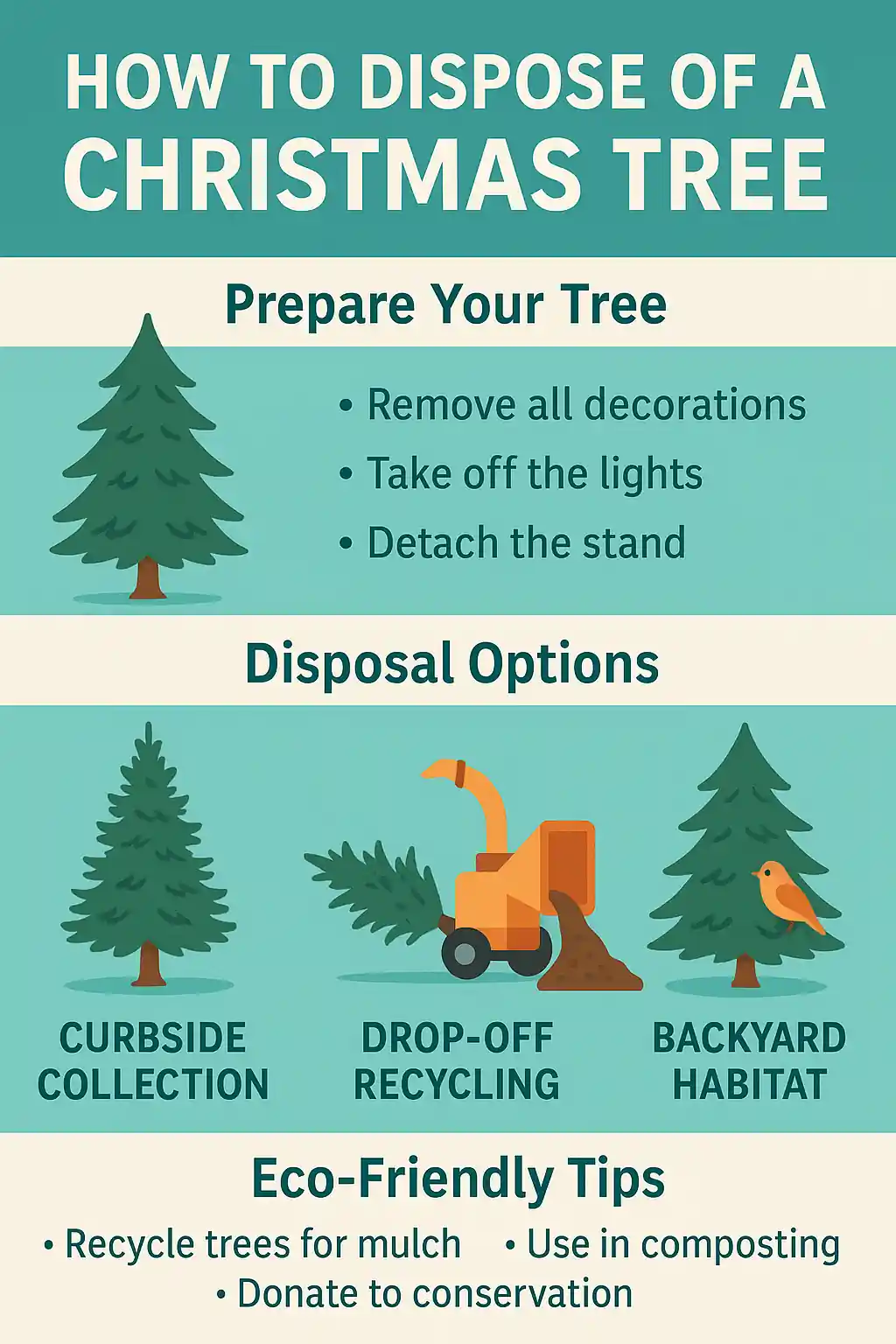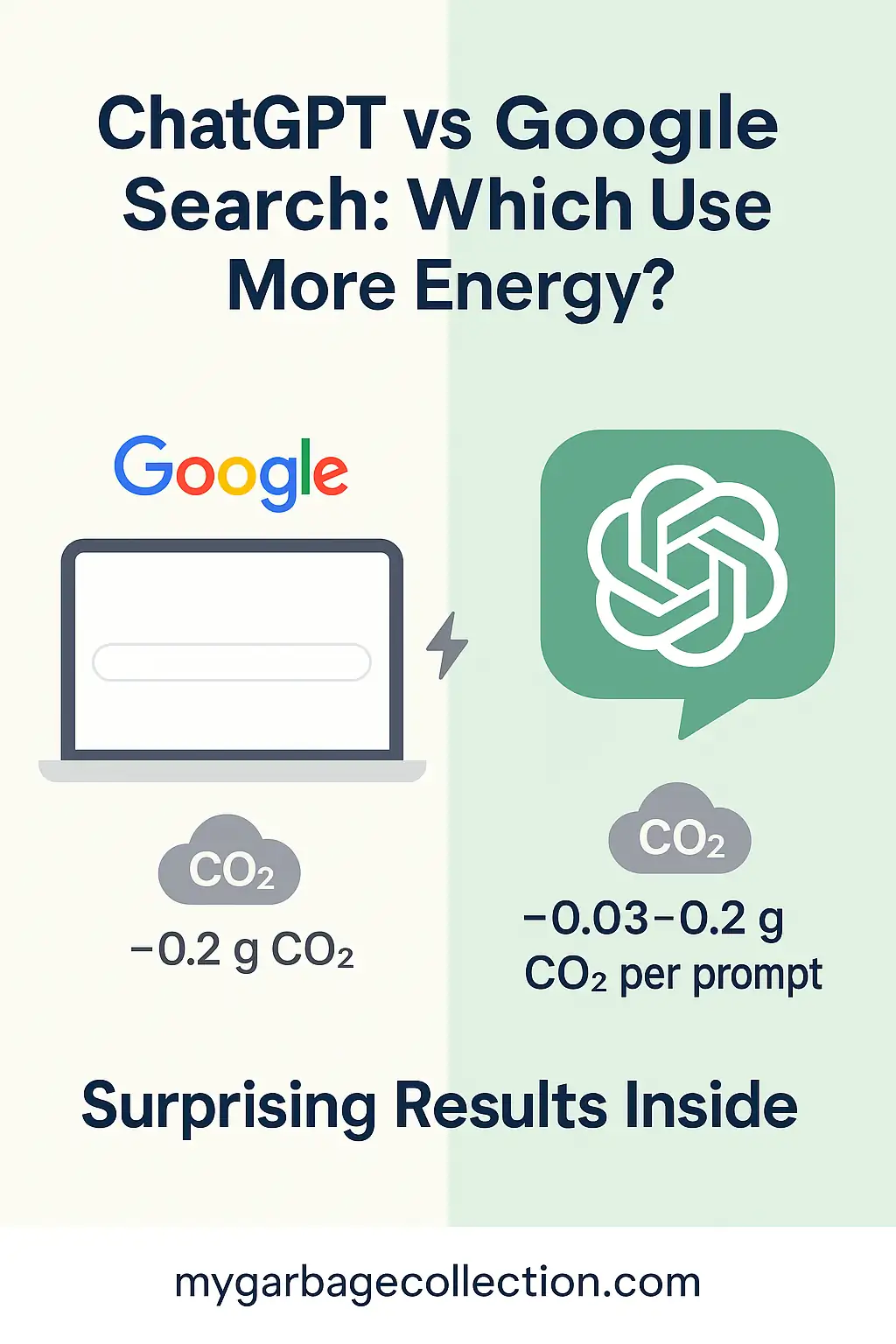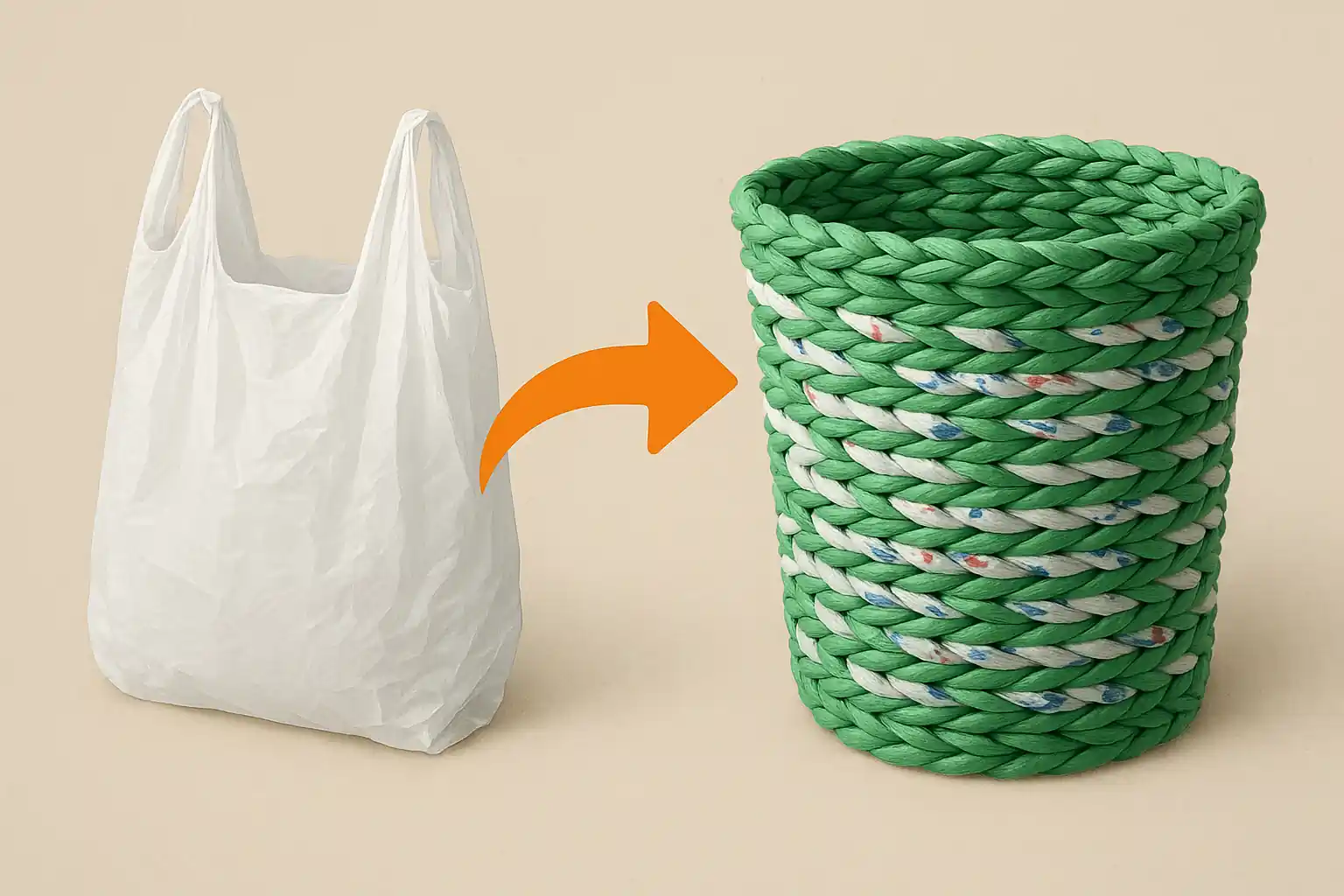How to Dispose of a Christmas Tree the Right Way?
When the festive season ends, the Christmas tree that brought joy to your home now needs to be removed. Disposing of it properly is more than just a matter of convenience. Done right, it can help reduce waste, protect the environment, and support community projects. Real Christmas trees are biodegradable and can be reused or recycled in many ways, giving them a meaningful purpose even after the holidays.

Preparing Your Tree for Disposal
The first step is to prepare the tree so it can be safely collected or recycled. All decorations should be removed, including ornaments, tinsel, lights, garlands, and hooks. Detach the stand whether it is made of plastic or metal. If the tree is covered in artificial snow or flocking, check with your local waste management service as many programs will not accept it. Cutting the tree into smaller sections makes it easier to handle, especially if your community requires trees to be in four foot lengths for pickup.
Curbside Christmas Tree Collection
Many cities arrange special curbside pickups during January. These collections often take the trees to facilities where they are turned into mulch, compost, or wood chips for landscaping projects. To use this service, place the tree at the curb on the designated day without any wrapping or bags. Some municipalities request that branches be tied together with natural twine, so always check local requirements.

Stay Updated. Skip the Guesswork.
Get daily trash pickup alerts, holiday changes, and zip-code-specific updates straight to your inbox — all for just $10/month.
🔔 Subscribe & Get Daily AlertsCancel anytime. Perfect for busy households, seniors & renters.
Drop Off Recycling Programs
If curbside collection is not offered in your area, local recycling drop off points are a good alternative. These sites accept trees for processing into mulch or compost that will be used in public parks, gardens, or community landscaping. Before visiting a drop off location, make sure you follow any preparation guidelines and confirm the hours of operation to avoid long wait times.
Read: How to Find Out Trash Day in My Area?
Turning Your Tree into Mulch
For those with gardens, turning the tree into mulch is one of the most sustainable choices. Pine needles break down slowly, helping to retain soil moisture, suppress weeds, and regulate temperature around plants. If you have access to a wood chipper, the branches can be shredded into chips and spread directly in flower beds, around shrubs, or along pathways.
Creating a Wildlife Habitat
Instead of removing the tree right away, you can place it in your backyard as a natural shelter for birds and small animals. The branches offer protection from the wind and cold, while adding food sources such as bird feeders or seed covered pinecones turns the tree into a winter feeding station. This approach can help local wildlife during the harsher months of the year.
Supporting Shoreline and Habitat Projects
In certain communities, conservation groups collect Christmas trees for use in erosion control or as underwater habitats for fish. The trees are strategically placed to trap sediment, slow water movement, and provide safe shelter for aquatic life. To participate, contact local environmental organizations to see if they accept tree donations for such projects.
Repurposing the Trunk and Branches
The trunk of the tree can be cut into logs for outdoor fire pits once it has dried properly. Small slices of the trunk make rustic coasters or can be used in garden paths. Avoid burning Christmas trees indoors, as the resin can cause dangerous buildup in chimneys.
Composting Your Christmas Tree
If you compost at home, cutting the branches into smaller pieces allows them to be mixed into the compost pile where they will break down over time. The woody material also helps improve airflow, aiding in the decomposition process of other organic waste.
Following Local Disposal Rules
Every area has its own regulations for Christmas tree disposal. It is essential to check your municipality’s waste management information for collection dates, preparation requirements, and accepted tree types. Setting the tree out on the wrong day or without proper preparation may mean it will not be collected.

Frequently Asked Questions
Also Read:





